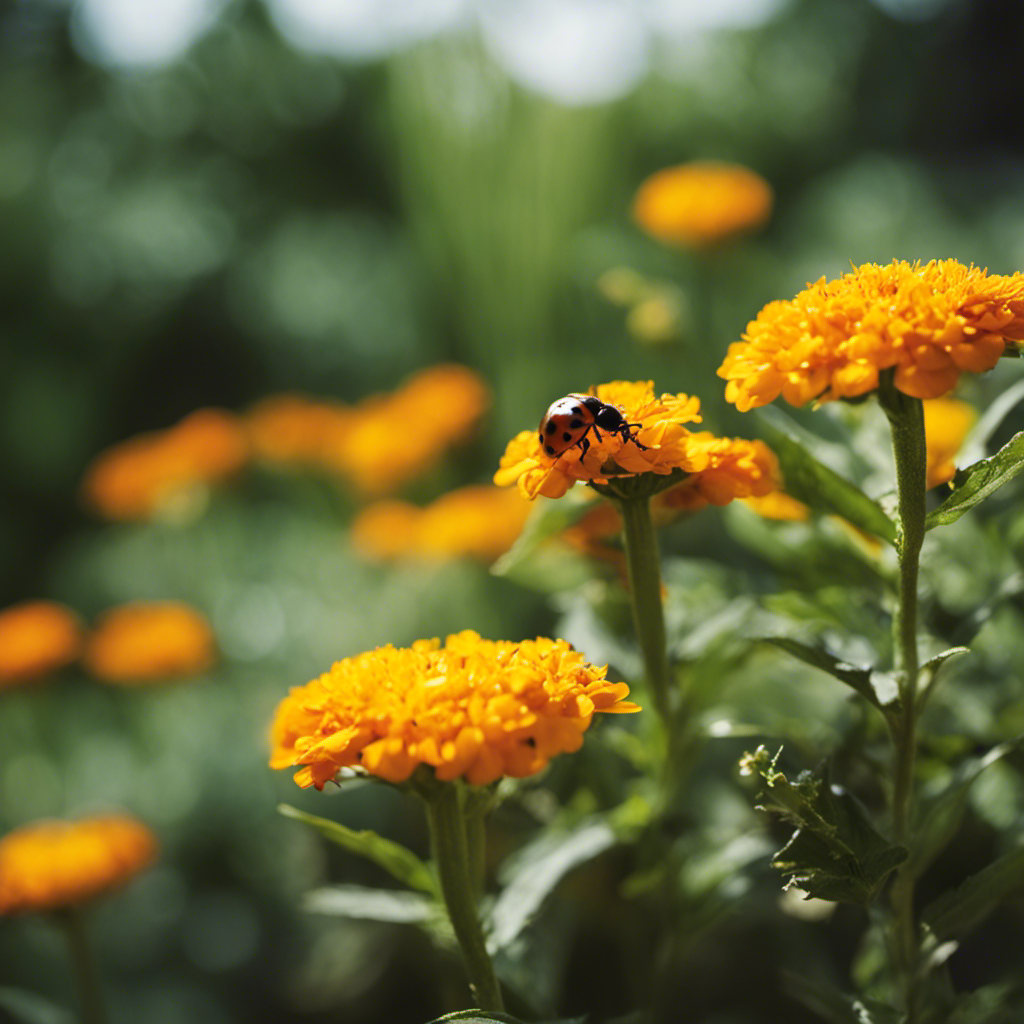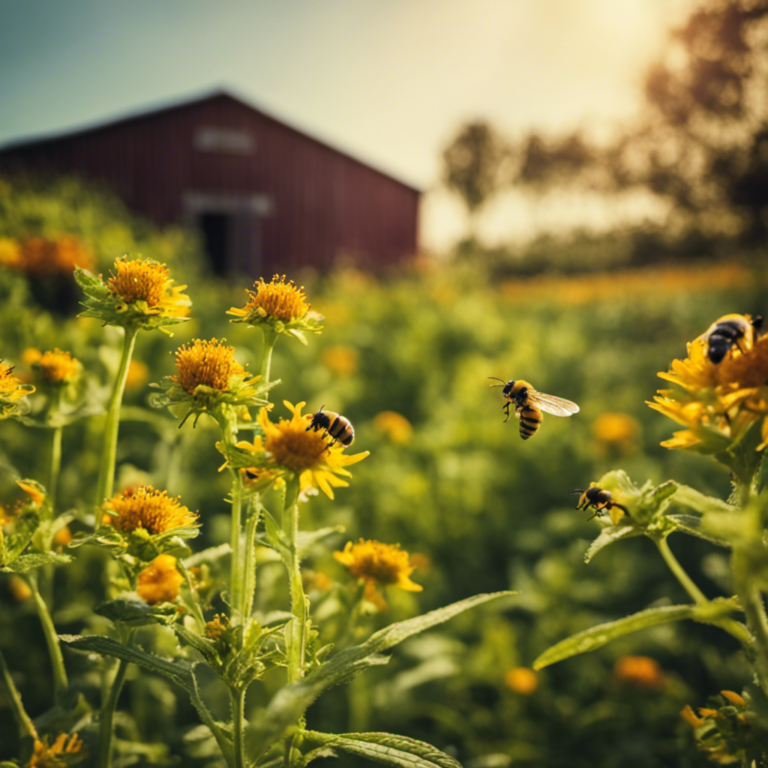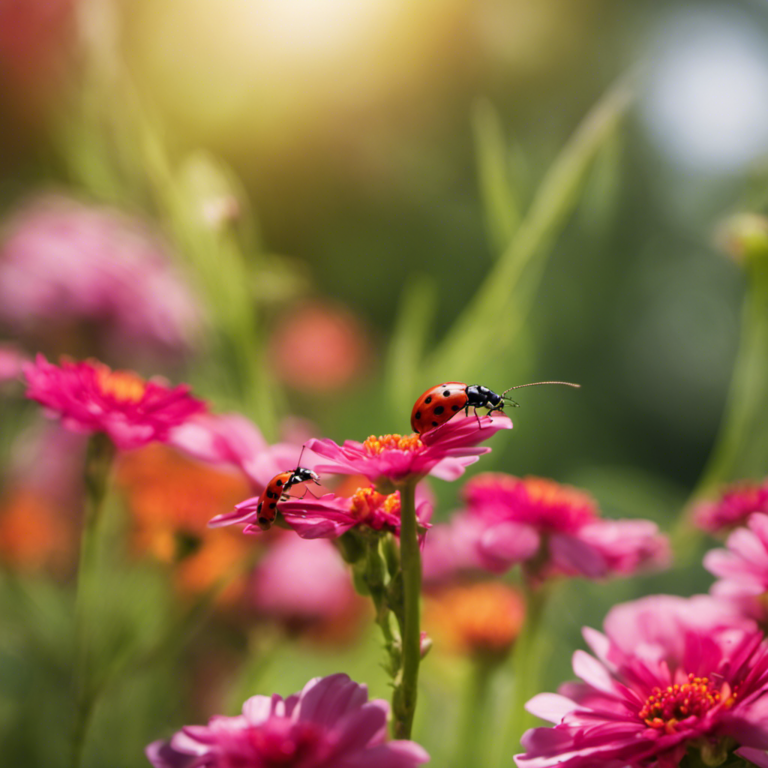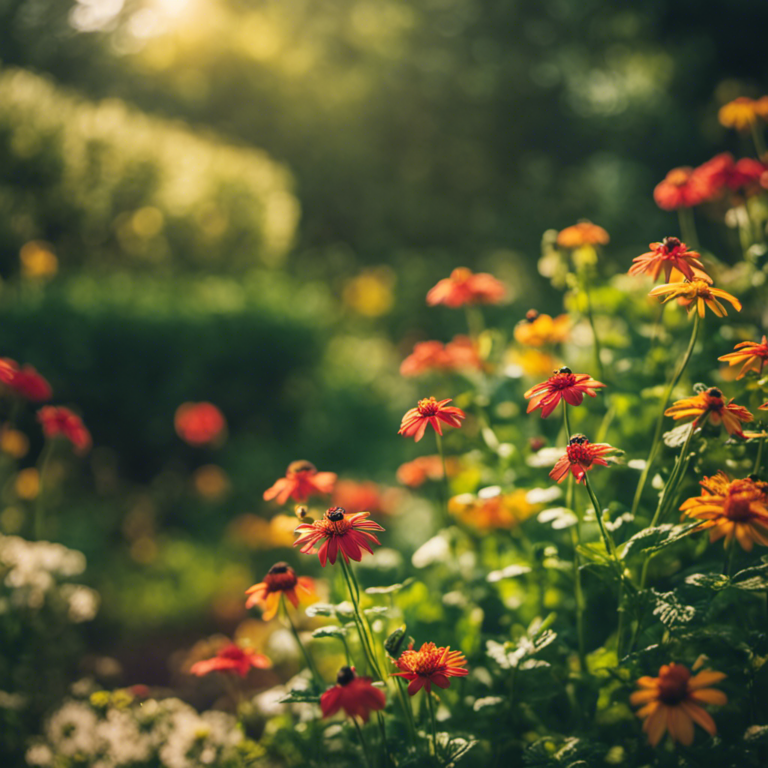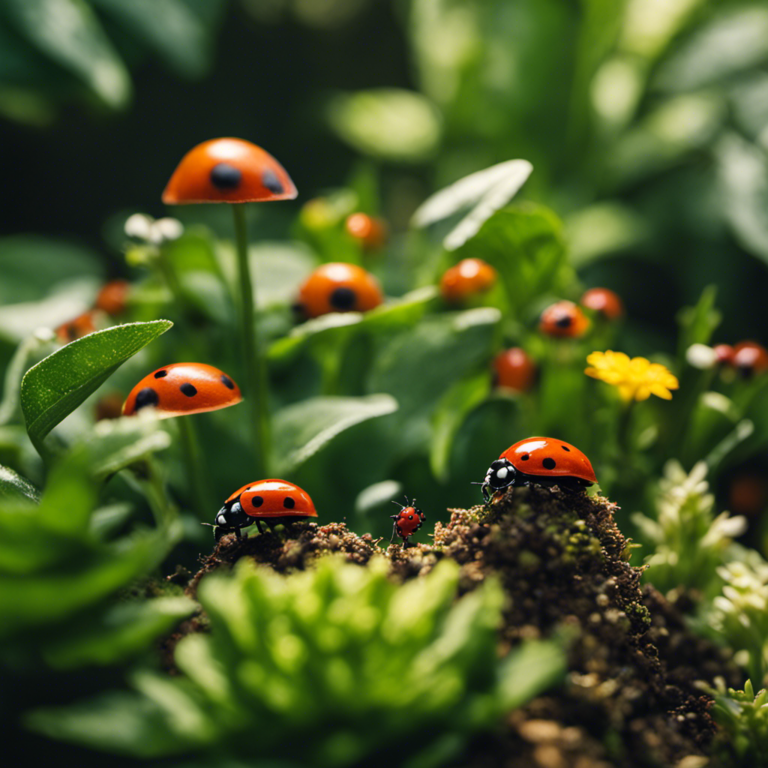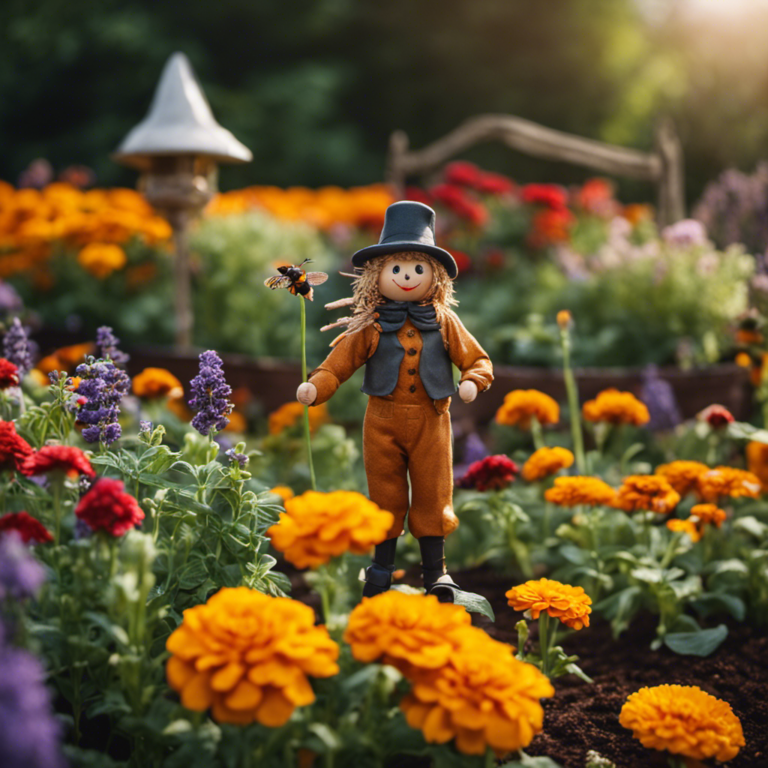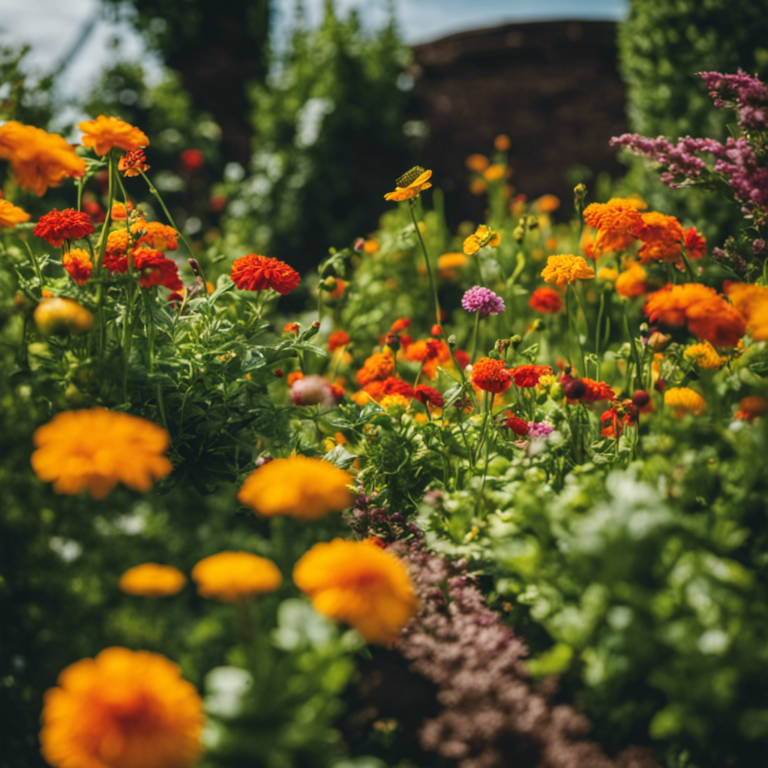Looking for environmentally-friendly ways to rid your garden of pests? You’re in luck! In this article, we will explore six natural methods that can help your garden flourish without the use of harmful chemicals.
Say goodbye to pesticides and hello to:
- Companion planting
- Natural predators
- Homemade pest sprays
- Physical barriers
- Soil amendments
With these effective techniques, you can take control of your garden while also protecting the environment.
Let’s dive in and discover how you can use these methods to benefit your garden!
Key Takeaways
Six Methods to Naturally Eliminate Garden Pests in an Eco-Friendly Way
Using eco-friendly methods to eliminate garden pests not only helps protect the environment but also promotes sustainable gardening practices. By employing techniques such as companion planting, attracting natural predators, making homemade pest sprays, using physical barriers, and improving soil quality, you can effectively manage pests without relying on harmful chemicals.
These eco-friendly techniques have the added benefit of increasing biodiversity in your garden by up to 30%. This creates a balanced ecosystem that supports healthy plant growth and contributes to a greener and more fruitful harvest.
So, by embracing nature’s allies and implementing these methods, you can create a thriving garden while minimizing the use of harmful pesticides.
Companion Planting
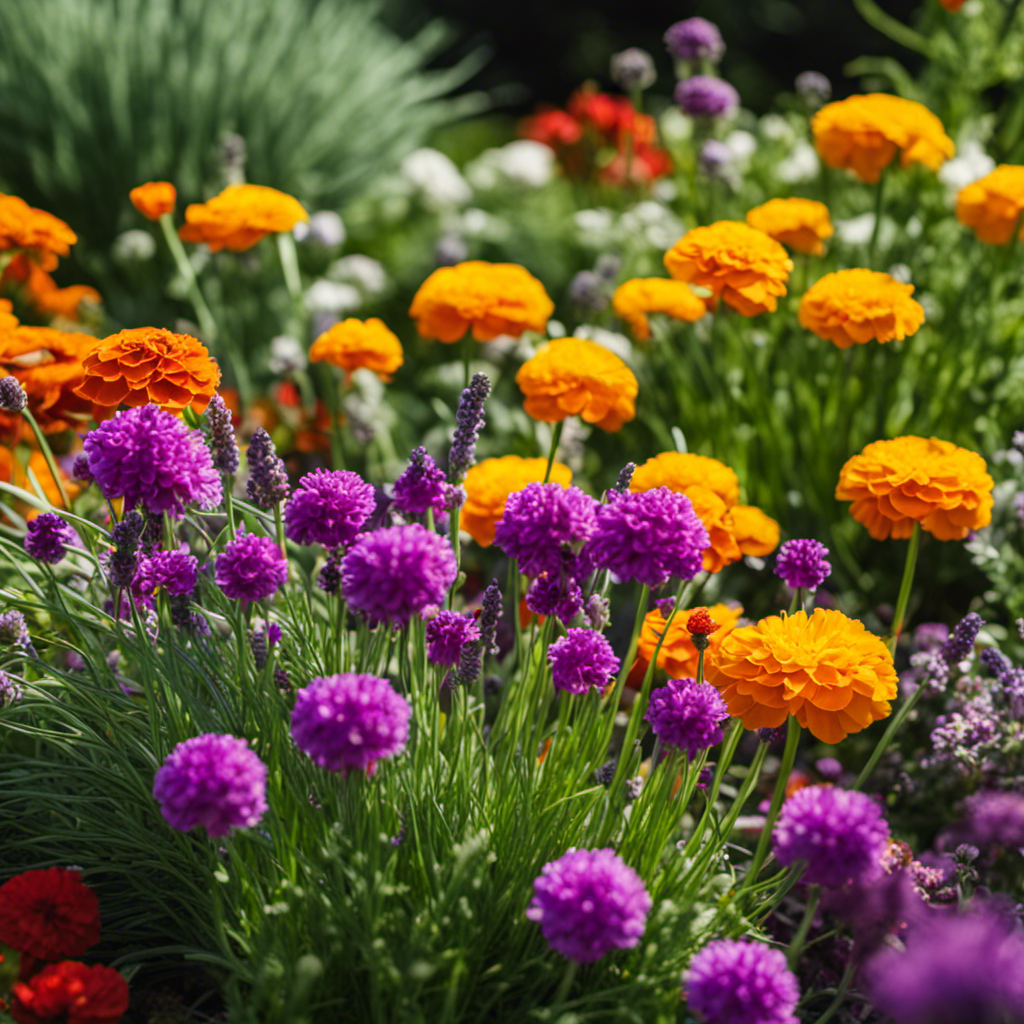
Utilize Companion Planting for Natural Pest Control
To naturally repel pests from your garden, consider using companion planting techniques. Companion planting involves strategically planting certain plants together to enhance pest control and overall garden health. This practice has dual benefits: it attracts beneficial insects that prey on garden pests and repels pests through natural scents or chemical compounds. By carefully selecting companion plants, you can create a balanced ecosystem that effectively controls pests without resorting to harmful pesticides.
Marigolds are excellent companion plants for pest control as they deter nematodes and repel aphids. Basil is another great option as it repels mosquitoes and flies. Nasturtiums are beneficial too, as they attract aphids away from your other plants. Planting mint near cabbage can help deter cabbage worms. Other effective companion plants include dill, which attracts beneficial wasps that prey on caterpillars, and chives, which repel aphids and Japanese beetles.
Natural Predators
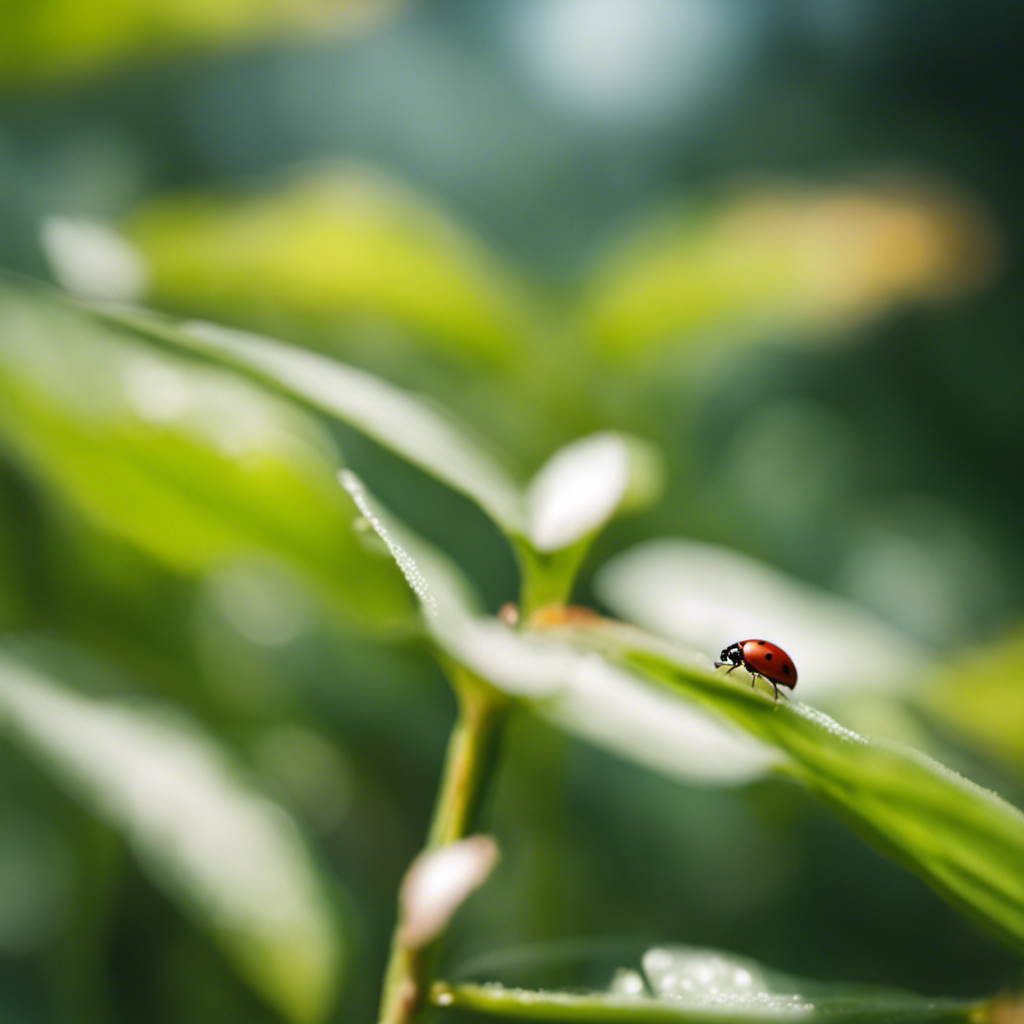
Let’s explore the topic of natural predators and how they can help control garden pests in an environmentally friendly way.
Beneficial insects like ladybugs, lacewings, and parasitic wasps play a vital role in biological control by preying on common garden pests.
Ladybugs, for instance, feed on aphids, mites, and other soft-bodied insects, while lacewings consume aphids, mealybugs, and small caterpillars.
Parasitic wasps lay their eggs inside pests, ultimately killing them.
By introducing these natural predators to your garden, you can establish a balanced ecosystem where pests are controlled without the need for harmful chemical pesticides.
Encouraging beneficial insects involves creating habitats with diverse plantings, providing water sources, and avoiding the use of broad-spectrum insecticides that can harm both pests and beneficial insects.
Homemade Pest Sprays
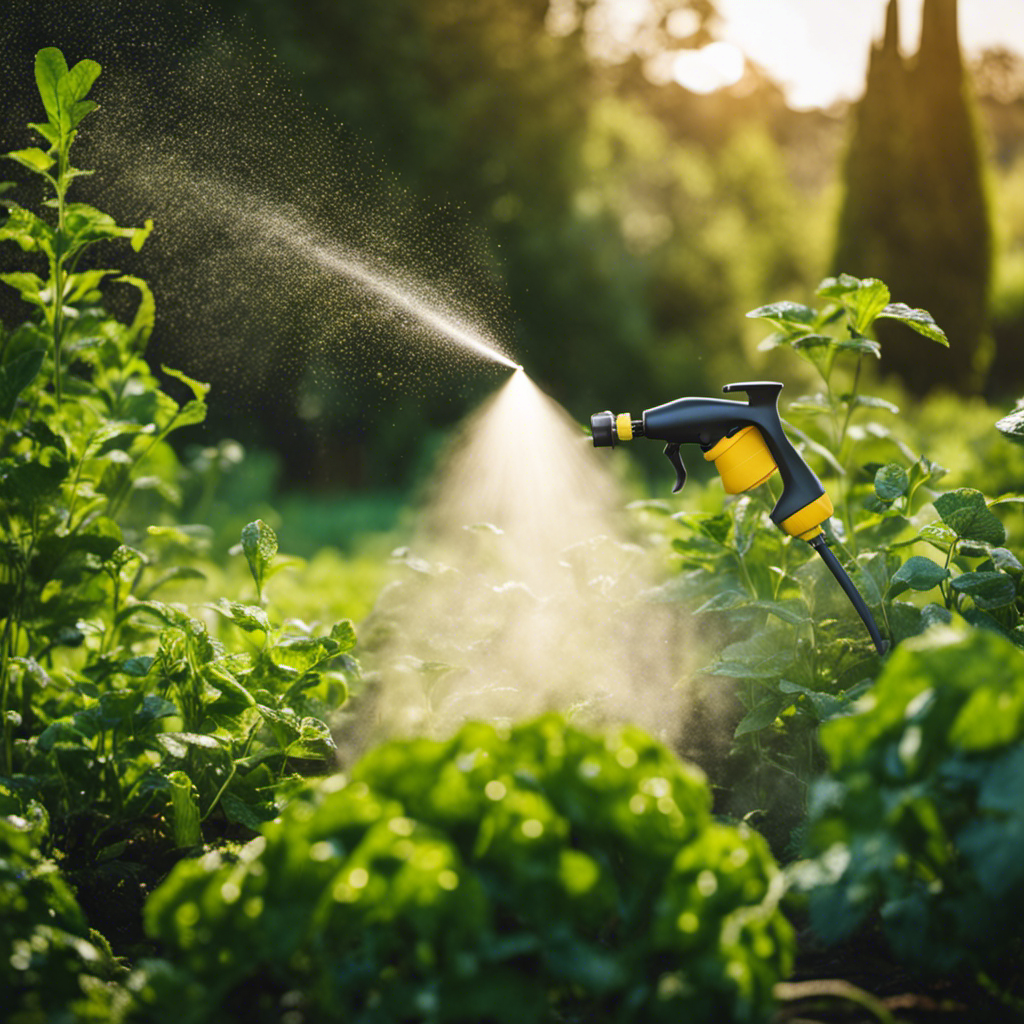
Make your own homemade pest sprays to effectively control garden pests in an eco-friendly manner. Using organic repellents and DIY insecticides can help you maintain a pest-free garden without relying on harmful chemicals.
Here are four simple homemade pest sprays that you can easily create at home:
-
Neem oil spray: Neem oil is a natural insecticide that can repel various garden pests like aphids, caterpillars, and mites. To make this spray, mix neem oil with water and a few drops of dish soap. Apply the mixture by spraying it onto your plants.
-
Garlic spray: Garlic has natural insect-repelling properties. To create garlic spray, blend garlic cloves with water and strain the mixture. Add a few drops of dish soap to help the solution adhere to the plants, then spray it onto your garden.
-
Hot pepper spray: Capsaicin, the compound responsible for the spiciness of peppers, acts as a natural insect deterrent. Mix hot pepper flakes or powder with water and a few drops of dish soap. Spray this mixture onto your plants to repel pests.
-
Soap spray: A simple mixture of water and dish soap can effectively control pests like aphids, mites, and whiteflies. Mix a few drops of dish soap with water, then spray it onto your plants.
Physical Barriers
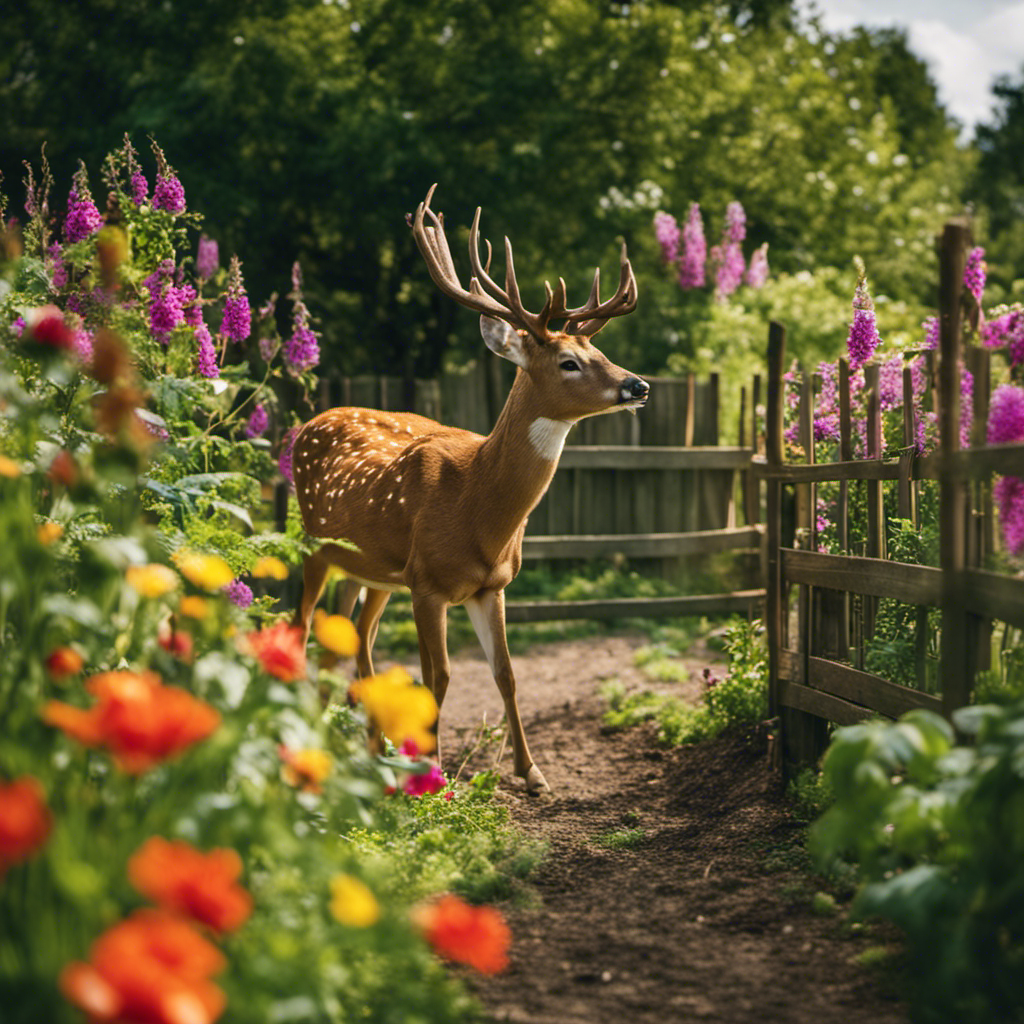
Protecting your garden from pests can be achieved by implementing physical barriers. These barriers serve as a deterrent, preventing pests from reaching your plants and causing damage.
One effective method is vertical gardening, where plants are grown in containers or on trellises, creating a barrier that pests struggle to cross.
Another option is the use of floating row covers, which are lightweight fabrics that can be placed over your plants. These covers provide protection from pests while still allowing sunlight, air, and water to reach your plants.
Additionally, you can install fences or netting around your garden to keep larger pests, such as rabbits or deer, out.
Soil Amendments
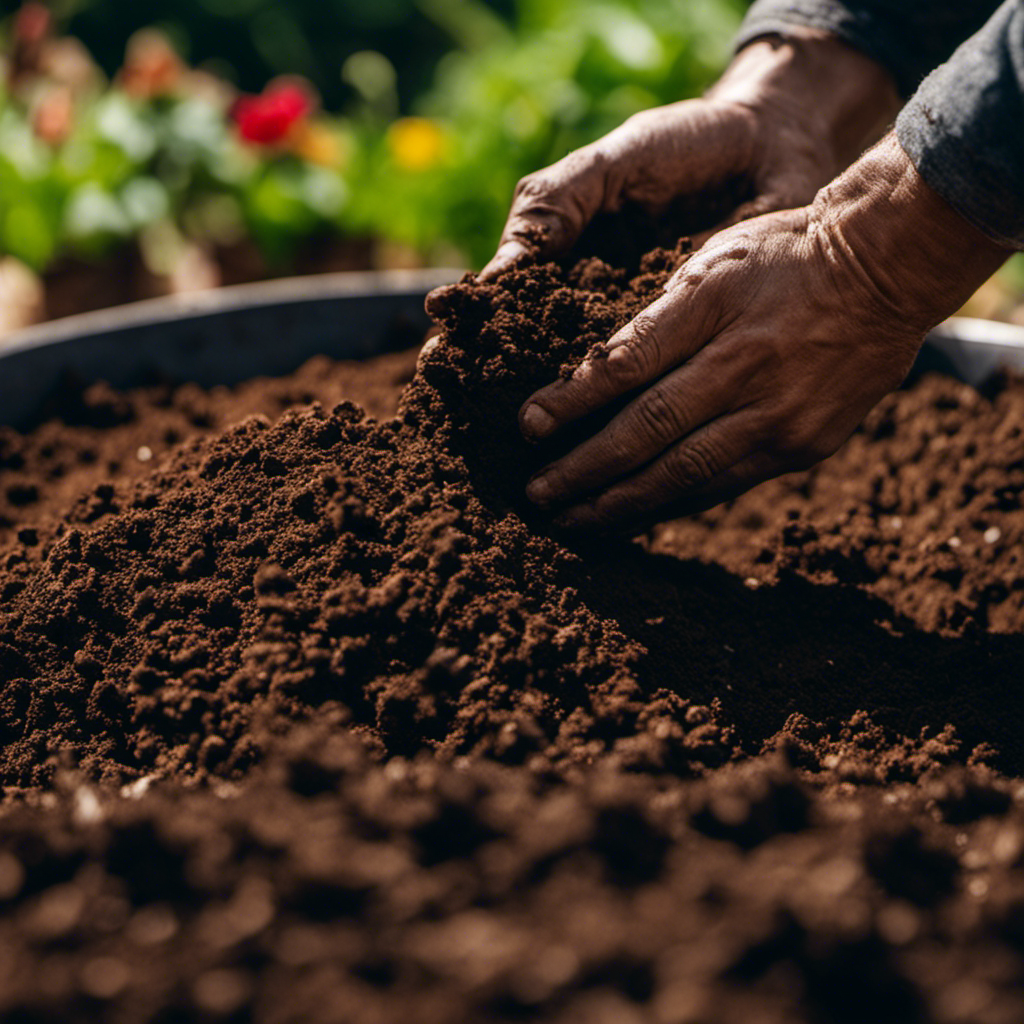
One effective way to naturally get rid of garden pests is by using soil amendments. By adding organic matter to your soil, you can improve its overall health and fertility, making it less appealing to pests. Here are four soil amendments that can help you have pest-free gardens:
-
Compost: Adding compost to your soil not only improves its structure but also helps it retain moisture. Compost is packed with nutrients and beneficial microorganisms that promote healthy plant growth and discourage pests.
-
Organic fertilizers: Using natural fertilizers like bone meal or fish emulsion provides plants with essential nutrients without the use of harmful chemicals. These fertilizers nourish the soil, making it more resistant to pests and diseases.
-
Mulch: Applying a layer of organic mulch around your plants helps retain moisture and suppress weed growth. Mulch also acts as a barrier that pests find difficult to penetrate.
-
Cover crops: Planting cover crops like clover or rye during the off-season improves soil fertility and prevents weed growth. This creates an environment that pests find less attractive.
Incorporating these soil amendments into your gardening routine offers several benefits, including improved soil health, reduced pest pressure, and increased plant vigor.
Conclusion
Employing eco-friendly methods to naturally eliminate garden pests not only protects the environment but also promotes sustainable gardening practices.
By using companion planting, attracting natural predators, making homemade pest sprays, using physical barriers, and improving soil quality, you can effectively manage pests without relying on harmful chemicals.
These eco-friendly techniques can increase biodiversity in your garden by up to 30%, creating a balanced ecosystem that supports healthy plant growth.
So, embrace nature’s allies and enjoy a greener and more fruitful harvest.
